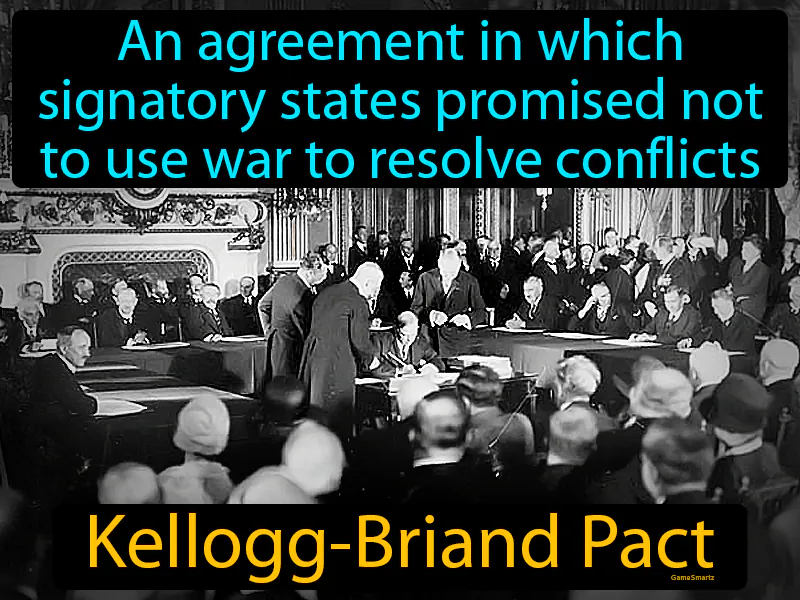Kellogg-Briand Pact
Kellogg-Briand Pact:
The Kellogg-Briand Pact, signed in 1928, was important because it represented a global desire to prevent another devastating war like World War I. It highlighted the tension between countries' aspirations for peace and the reality of rising totalitarian regimes, such as Nazi Germany and Fascist Italy, which would soon ignore the pact and pursue aggressive expansion. This agreement emphasized the idea of collective security, suggesting that countries should work together to resolve conflicts peacefully. Today, the pact's legacy influences modern international laws and organizations like the United Nations, which aim to prevent conflicts through diplomacy. For an average person, these ideas impact everyday life by promoting global cooperation, which can help maintain peace and stability, fostering environments where individuals can live without the fear of war.

Practice Version

Kellogg-Briand Pact: An agreement in which signatory states promised not to use war to resolve conflicts. Kellogg-Briand Pact. The Kellogg-Briand Pact is a 1928 international treaty that aimed to prevent wars by outlawing the use of war as a tool for resolving disputes.
